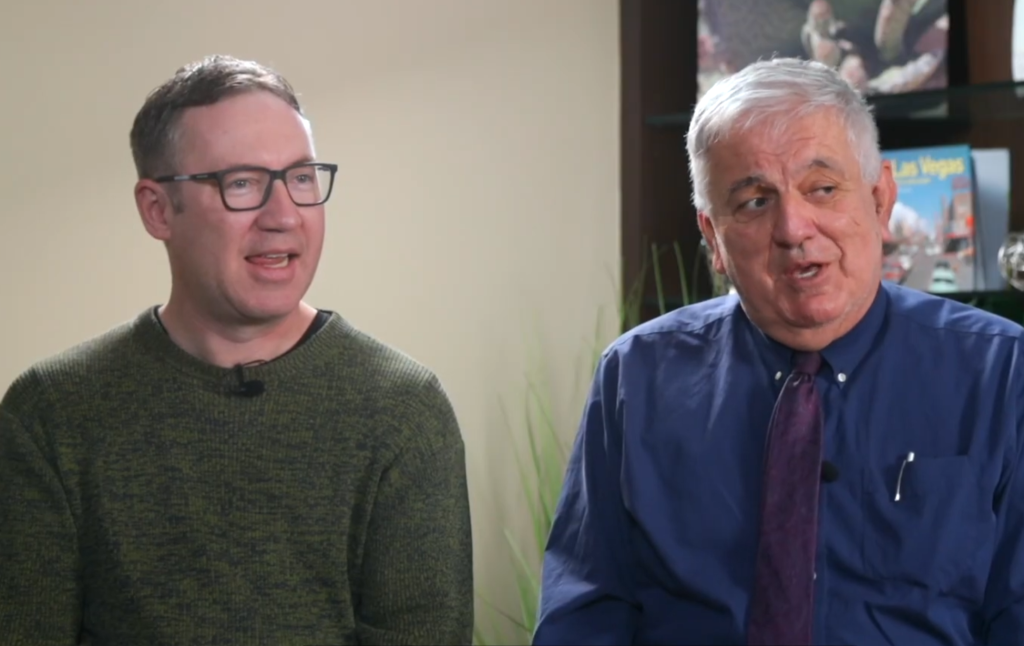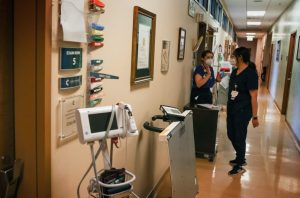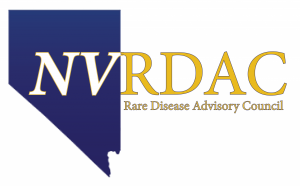Key Takeaways:
- Nevada passed two major rare disease bills in 2025: SB189 (genetic counseling licensure) and SB348 (newborn screening modernization).
- SB189 establishes licensing for genetic counselors and recognizes genetic counseling as a reimbursable medical service in Nevada.
- SB348 modernizes Nevada’s newborn screening program by updating the funding model and requiring separate Medicaid reimbursement.
- The Nevada Rare Disease Advisory Council (NV-RDAC), chaired by Annette Logan Parker, led the advocacy efforts for both bills.
- Together, these bills create a comprehensive system connecting early detection, diagnosis, and treatment for rare diseases in Nevada.
- More than 30 million Americans live with rare diseases, including thousands of Nevada families who previously faced limited local resources.

What is Nevada Rare Disease Legislation?
Nevada rare disease legislation are state laws designed to improve diagnosis, treatment, and access to care for families affected by rare diseases. In 2025, Nevada made historic progress with the passage of two landmark bills: Senate Bill 189 and Senate Bill 348.
These bills represent Nevada’s commitment to building a healthcare system where early detection, affordable access, and coordinated care are standard—not luxuries. For Nevada’s rare disease community, this legislation marks a turning point in how the state supports its most medically complex patients.
Why Does Nevada Need Rare Disease Legislation?
One in ten Americans—more than 30 million people—lives with a rare disease. In Nevada, families facing rare disease diagnoses have historically encountered significant barriers: delayed diagnoses, limited treatment options, and fragmented care systems.
According to the National Organization for Rare Disorders (NORD) 2024 State Report Card, Nevada ranked in the middle tier of states for rare disease support. While not failing, Nevada had clear opportunities to lead. The challenge was building infrastructure for early detection, ensuring affordable access, and creating coordinated care pathways.
The 2025 legislative session changed that trajectory, and the impact on 2026 and beyond is profound.

What is SB189 in Nevada?
Senate Bill 189, sponsored by Senator Roberta Lange, establishes Nevada’s first licensing framework for genetic counselors. Genetic counselors are healthcare professionals who help families understand genetic test results and make informed decisions about their care.
What SB189 Does
SB189 creates professional licensure and regulation for genetic counselors in Nevada, ensuring families receive expert guidance when interpreting genetic testing results. The bill recognizes genetic counseling as a reimbursable medical service, making this specialized care accessible and affordable for Nevada families.
Before SB189, Nevada patients often had to seek genetic counseling expertise out of state. Now, licensed genetic counselors can practice locally, and their services are covered by insurance.
Why SB189 Matters
For families receiving newborn screening results or rare disease diagnoses, genetic counseling translates complex medical data into actionable answers. SB189 ensures that Nevada has the professional workforce needed to support families from diagnosis through treatment decisions—turning uncertainty into understanding.

What is SB348 in Nevada?
Senate Bill 348, sponsored by Senator Julie Pazina, modernizes Nevada’s newborn screening program. Every baby born in Nevada is tested for dozens of life-threatening genetic and metabolic conditions that are treatable when caught early.
What SB348 Does
SB348 updates Nevada’s decade-old newborn screening funding model to reflect rising costs and new technologies. The bill increases the newborn screening fee from $81 to $122 in 2025 and $150 in 2026. Critically, SB348 requires Medicaid to reimburse newborn screening separately from delivery care, ensuring hospitals and labs receive fair payment while protecting families from unexpected costs.
Why SB348 Matters
Nevada’s newborn screening program was at risk of falling behind due to outdated funding and expiring federal grants. SB348 ensures every Nevada baby receives comprehensive screening for conditions that, when detected early, can mean the difference between lifelong complications and healthy development. For rare diseases, early detection is life-saving.

How Do SB189 and SB348 Work Together?
This new Nevada rare disease legislation isn’t just about passing individual bills—it’s about creating a comprehensive system of care. SB189 and SB348 work together to connect every step of the rare disease journey, from detection to diagnosis to treatment.
Focus Area
SB189 (Genetic Counseling)
SB348 (Newborn Screening)
Early Detection
Licenses genetic counselors to interpret results
Expands and sustains newborn screening program
Access & Coverage
Recognizes counseling as a reimbursable service
Ensures Medicaid reimbursement for screening
Quality & Oversight
Strengthens lab standards through licensure
Supports state lab sustainability with updated funding
Patient Support
Builds professional workforce for ongoing care
Detects conditions at birth for immediate intervention
Together, these bills create a pathway from screening to diagnosis, connecting Nevada families with the resources they need exactly when they need them.

Who Led Nevada’s Rare Disease Legislative Efforts?
The Nevada Rare Disease Advisory Council (NV-RDAC), chaired by Annette Logan-Parker, led the advocacy efforts that resulted in SB189 and SB348. Annette, who is also the Founder and Chief Advocacy & Innovation Officer of Cure 4 The Kids Foundation, worked with legislators, public health leaders, and community advocates to ensure rare disease priorities remained central throughout the legislative session.
The NV-RDAC’s collaborative approach—balancing fiscal responsibility with compassion and policy detail with human impact—ensured that the voices of Nevada families living with rare diseases were written directly into state law.
Learn more: Annette Logan-Parker reflects on being honored with the Nevada Cancer Coalition’s Advocacy Award for her dedication and advocacy.

What’s Next for Rare Disease Care in Nevada?
Nevada’s 2025 legislative victories lay the groundwork for continued progress. Future priorities include:
- Expanding Nevada’s newborn screening panel to include all 35 conditions recommended by the federal Recommended Uniform Screening Panel (RUSP)
- Implementing Medicaid coverage for licensed genetic counseling services
- Building an in-state Genetics and Rare Disease Center of Excellence
- Reinstating automatic inflation indexing to sustain long-term lab growth
According to NORD’s latest data, Nevada now ranks among stronger-performing states in newborn screening (Grade B), step therapy protections (Grade A), and telehealth access. The state’s active RDAC continues driving measurable change.
Championing Policy That Puts Patients First
Nevada rare disease legislation demonstrates what’s possible when compassion and policy align. SB189 and SB348 don’t just represent two health bills—they represent a comprehensive system that connects hope to action and diagnosis to care.
For Nevada families affected by rare diseases, this legislation means earlier answers, better access, and a healthcare system designed to support them from day one. For advocates and policymakers, it’s proof that strategic, collaborative leadership can transform healthcare systems and create lasting change.
Nevada is no longer following national trends in rare disease care. Today, we’re proud to say our great state is creating its own roadmap, one that puts patients and families first.



